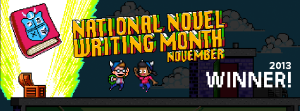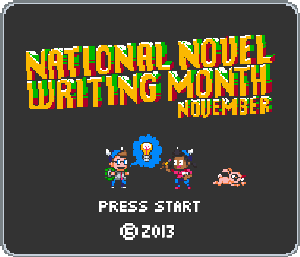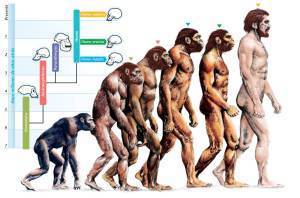Mandy Eve-Barnett's Blog, page 156
December 2, 2013
Atrocity of War…
Atrocity – definition: shocking cruelty or wickedness
In human history there have been hundreds of atrocities, some are part of written history but many have, alas, been forgotten as those who spoke of them have passed. Why do we not, as a species, learn from our mistakes? It is only a few generations since the ‘war to end all wars’ – World War I (1914-1918). Unfortunately, it was not the end of all wars as World War II (1939 – 1945) followed a mere twenty one years later. My grandfather served in the first and my mother and father were children during the second. When we actually look at our own families ancestry, it brings into sharp focus that these events are not that long ago. Surely, that mere fact should act as a deterrent.
Unfortunately, war is glorified in movies, books and games without consequence to the viewer/player. This must desensitize us to the actual horror and suffering. It is not up close and personal for the majority of people. Warfare can be waged from remote locations and aircraft thousands of feet above the ‘target’. For troops on the ground the horrors are all too real and they are haunted by them for the rest of their lives. I experienced this with my own grandfather, when in his old age, he would be convinced he was back in the trenches and would hide underneath his bed, pulling me down to safety.
My grandfather was also part of the Christmas truce (see here: http://en.wikipedia.org/wiki/Christmas_truce ) when both sides joined together in peace. If they could do it for a day why not forever?
War is death of mothers, fathers, sisters, brothers and children.
Why do humans continue to slaughter each other? We are the same species after all.
What is the answer to stop? That is the age old question that no one seems to know the answer to.
I recently saw a trailer for the movie The Book Thief. It is set in World War II and follows a young girls journey. I have attached a link to the book’s summary, for those interested.
http://www.shmoop.com/book-thief/summary.html
Related articles
War letters home: ‘The Christmas truce saw German soldiers sharing a barrel of beer with us British’ (telegraph.co.uk)


December 1, 2013
500th post…Whoop!
Austerity – definition: the quality or state of being stern or strict
Today is my 500th post…whoop!
When I committed to posting once a day for 2013, I had no real idea if I would be able to maintain it. Close friends thought I was either barking mad or extremely brave to even attempt it. I have been strict with myself about posting daily but have also found that by drafting posts ahead of time has helped enormously. This ‘trick’, which I’m sure lots of you know already was particularly useful when there were days I have not wanted to post, especially when I vacationed in England with my family after five years away. We fell into our relationships so easily and I did not want to miss moments with them all. So all I had to do was click and submit. The hardest time was when sadly, my Mother passed away in September and I had to travel to England from Canada to be with my siblings. She had been fascinated but puzzled with this ‘blog’ thing but did see how important it was to me and reminded me to pop up to my brother’s place to click and submit every evening. There was one evening when my brother was not at home so my Mother took me to one of her friends houses especially, so I did not ‘fail’. Her encouragement for me to try new things throughout my life has been an inspiration, one I have passed on to my children. Her legacy lives on.
This year has given me an increased word knowledge from the desk diary I use as inspiration each day as well as wonderful connections with authors around the world. As the last month arrives on this personal challenge I feel a sense of community and fellowship and thank you all for visiting and commenting. I have no idea what my 2014 schedule will be so any suggestions are welcome although once a day is probably not on the cards!
Is there anything you would like to see here?
What did you enjoy most?


November 30, 2013
Soothing my NaNoWriMo Buddies…
Assuage – definition: 1. to make milder or less severe; relieve; ease; mitigate; 2. to appease; satisfy; allay; relieve; 3. to soothe, calm, or mollify
Just remember its the taking part that counts. You will have a body of work to revise, edit and re-work for the next year, so don’t panic. NaNo is the starting point not the finish line.
If you make the magical 50,000 words – well done but if not know you have succeeded in challenging yourself and winning anyway. It is the journey of your story that is important.
I will be extra busy today at a local event with my publisher, Dream Write Publishing. If you are local come and grab early Xmas gifts and visit #14 booth – books for all ages. Xmas wrap available. Special children’s books packages prewrapped.
Noon – 7 pm - Dow Centennial Centre, 8700 84 ST, Fort Saskatchewan, Alberta T8L 4P5


November 29, 2013
Colossal Structures…
Colossal – definition: extraordinary great in size, extent, or degree; gigantic; huge
As some of you may know, I studied Greek and Roman mythology. This word brought to mind one of the lost wonders of the world. One I learnt about back in the day.
 The word colossal comes from the Latin – colossus , which in turn comes from the ancient Greek word kolossos, which meant large statue. In particular it referred to firstly the colossus of Rhodes. This statue was gigantic and stood at the entrance to the port of Rhodes. And also the The Colossus Neronis in Rome, which stood beside the Coliseum as a tribute to the emperor, Nero.
The word colossal comes from the Latin – colossus , which in turn comes from the ancient Greek word kolossos, which meant large statue. In particular it referred to firstly the colossus of Rhodes. This statue was gigantic and stood at the entrance to the port of Rhodes. And also the The Colossus Neronis in Rome, which stood beside the Coliseum as a tribute to the emperor, Nero.
The Colossus of Rhodes was one of the Seven Wonders of the Ancient World. It was constructed to celebrate Rhodes’ victory over the ruler of Cyprus, Antigonus I Monophthalmus. He was unsuccessful in besieging Rhodes in 305 BC. It was an impressive 30 meters (98.4 ft) high, which made it one of the tallest statues of the ancient world. The statue stood until its destruction by an earthquake in 226 BC.
Another large statue was the Colossus Neronis in Rome. This bronze statue was 30 meters high and represented the Emperor Nero. It stood in the vestibule of his Domus Aurea, an imerial villa complex spanning a large area from the north side of the Palatine Hill, across the Velian ridge and to the Esquiline Hill. Nero’s successors modified the statue into a representation of the sun god Sol Invictus. It is last mentioned in the 4th century AD. The statue was eventually moved to a spot outside the Flavian Amphitheatre, which (according to one of the more popular theories) became known, by its proximity to the Colossus, as the Colosseum.
Which colossal structure has your vote in the modern world?
Related articles
The Colossus of Rhodes – One of the Seven Wonders of the Ancient World to be reconstructed. (aceofgreeceguide.wordpress.com)


November 28, 2013
I DID IT..! NANOWRIMO 2013
Silence Returned – A Poem…
Susurrus – definition: a soft murmuring or rustling sound; whisper
Silence Returned
The gun shot exploded into the air
Tranquility shattered for an instant
Birds squawked and flew up in alarm
Scurrying paws rustled leaves and undergrowth
Clamoring for safety and shelter
The blast’s echo diminished
Quiet was restored
Noses poked out of burrows
Birds returned to their roosts
Small animals emerged
The wind whispered
Peace revisited the forest
Photo by Radaclyffe1928


November 27, 2013
Eleemosynary – What a Word..!
Eleemosynary – definition: 1. of or for charity; charitable; 2. given in charity; having the nature of alms; 3. supported by or dependent on charity.
Don’t you just love this word? I do.
When I lived in England I used to travel the country visiting castles, historic houses and ancient archaeological sites. Among the many places I saw were Alms houses. These buildings were built to house the poor, old and distressed people and were often funded by Christian institutions. The first Almshouses were established in the tenth century in Britain. King Athelstan (a personal favorite) founded the first recorded Almshouse in York, England. The Hospital of St. Cross in Winchester is the oldest still in existence, dating from about 1132.
There are Almshouses in other countries. One was established in Stavanger, Norway in 1269 or 1270. Almshouses were introduced to the Commonwealth of Pennsylvania by it’s founder William Penn. In Maryland the legislature created almshouses in Anne Arundel County, which were financed by property taxes on landowners. Another state with a long tradition of almshouses is Massachusetts. The aid was available in the United States mainly for the elderly and disabled, and for children that had to sleep in the same rooms as adults. Non-governmental organizations provided this care due to the scandalous limited care available. This system began in the eighteenth century.
The photo above is Almshouses in Stratford upon Avon, England and the ones below are Trowbridge and Chipping Norton, England.
Have you visited Almshouses?
http://en.wikipedia.org/wiki/Almshouse


November 26, 2013
Signs of Panic – NaNoWriMo 2013…
Clamant – definition: 1. clamorous; noisy; 2. compelling, or pressing; urgent
With only five days left to achieve the magical fifty thousand words of the National Novel Writing Month challenge, many participants are now feeling the pressure.
If you are fearing the 30th November link up here for some pep talks:
http://nanowrimo.org/pep-talks
My own experience this time around in NaNo, I found I ‘lost’ motivation when I tried to keep to my plot model. Having the story mapped out before me, hindered my creativity and I lagged behind dreadfully. Trying a new genre – cowboy romance – has added to the struggle but I am determined to make that goal. I may not sleep for the rest of this week but it will be worth it.
My word count today is 45,844, leaving a tantalizing 4,156 words left to create. I have to squeeze them in between a conference planning meeting tonight, an orthodontist appointment for my daughter on Thursday and organizing and packing books on Friday evening for an all day event on Saturday. Will I make it? I hope so. To be so close and not succeed would seriously suck!
How are you coping with these last few days?
Have you already achieved the target 50,000? Or surpassed it?
Do you have any words of wisdom to achieve the total?
Related articles
NaNoWriMo – Prison of Your Word Count (teagansbooks.wordpress.com)


November 25, 2013
Humans Don’t Acclimatize, They Destroy…
Acclimatize – definition: to adapt oneself to one’s surroundings, environment, or climate
Most of us are familiar with how animal species have adapted to their environments. As a David Attenborough fan, I have watched numerous programs where he has shown these in glorious color. I will not go into the hundreds of adaptations here but this link is a great source of information, if you are interested. http://www.bbc.co.uk/nature/adaptations
It is the adaptations of the human species, which concerns me. Earlier civilizations lived with their surroundings and maintained the natural balance. As humans developed and formed larger and larger groups, this changed and we began manipulating our surroundings to suit us. Areas of the planet previously uninhabited due to the climate or conditions were invaded and structures built to accommodate. Resources were, and still are, ravaged. Vast areas of the planet are now under concrete and this ‘invasion’ is still going on.
Humans adapt their environment in any way they can. From the sewing of furs, inventing shoes, discovering how to shear sheep to make wool for weaving clothing, taming fire, domesticating animals, and inventing agriculture, there has been an explosion of adaptations. Also housing became more and more sophisticated from caves to mud huts to brick buildings and wooden structures with insulation. Another discovery was herbs and how they could be used either for culinary or medicinal uses, and which were poisonous. Tools have developed and improved from split rocks with sharp edges to battery powered tools for every aspect of building. Yes, we are a ‘clever’ animal but at what cost?
Unfortunately, this behavior is continuing even though there is scientific proof that human impact on the planet and its inhabitants is destroying the only ‘home’ we have. Obviously, we can not unlearn our inventions and expectations for ourselves – everyone wants a nice home to live in and easy access to food and clothing.
What is the answer? That is the billion dollar question!


November 24, 2013
A Superb Complicated Character…
Maunder – definition: 1. to talk in a rambling, foolish, or meaningless way; 2. to move, go, or act in an aimless, confused manner
As a long time viewer of Dr. Who, I could not miss the 50 year celebrations of this fantastic time traveler show this weekend. I don’t mind admitting that I have watched every single Doctor from Hartnell to Smith. For any show to last such a long time, is in a large par,t because of the excellent writing. To have a character time traveling is one thing but this one can morph into new forms, ensuring the viewer is continually engaged with their personalities. Each reincarnation has his own character traits and some were more rambling in their diction than others. The story lines and monsters are obviously a major part of the show as well and the writers have managed to keep us guessing what they will create next.
http://en.wikipedia.org/wiki/Doctor_(Doctor_Who)
Everyone has their favorite Doctor or Doctors. Some are memories of episodes when they were children and others when as adults they can appreciate the complexity of the time traveling hero and his Tardis.
As a writer, I only think it fair to highlight the writers who have made us scream, hide behind the sofa and puzzle over the complexities of each episode. The attention to detail and back story makes each episode so ‘real’ that we are aware of the monster’s motivation and await the Doctor’s solution with avid anticipation.
http://en.wikipedia.org/wiki/List_of_Doctor_Who_writers
I salute these writers for their ingenuity and excellent writing. This quote says it all:
Douglas Adams, who was a Doctor Who writer of huge renown, said the show had to be complicated enough for children and simple enough for adults, and that still holds true, I think. The target audience is everybody from 6 to 106,” he continued. “You want it to be exciting and thrilling and have a lot of different takes to it. You want it to be emotional, and have great characters, and you also want it to be self-contained: within 45 minutes, you’re having to land on a planet, or a period of history, meet a whole bunch of people, solve a mystery, have an adventure and get back in the TARDIS — and with jokes, and you can’t afford to do any of it. That’s why it’s one of the hardest shows to write for, but when you even come close to getting it right, it’s the most exciting show in the world to write for.”
Source: http://www.hollywoodreporter.com/heat-vision/writers-explain-why-doctor-who-659103


























